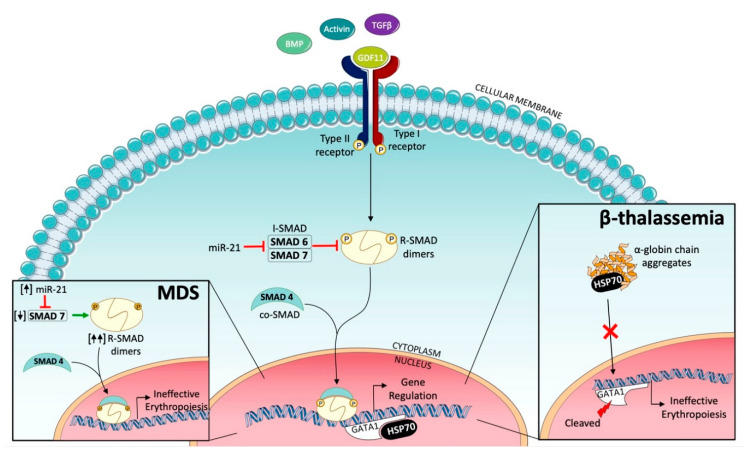Figure 2.
Erythropoiesis regulation by TGF-β superfamily signaling in physiologic and pathologic conditions, particularly in myelodysplastic syndromes (MDS) and β-thalassemia. Following ligand binding to the type II receptor, the type I receptor is recruited and phosphorylated. TGF-β induces the phosphorylation of regulatory SMADs (R-SMADs), SMAD2 and 3, to form the complex R-SMAD/SMAD4, which modulates the expression of target genes. MDS patients display an overactivation of SMAD2/3 signaling due to the altered expression of mir-21 and SMAD7, which in turn induce ineffective erythropoiesis. In β-thalassemia, aggregates of α-globin sequester heat shock protein 70 (HSP70), inhibiting its translocation to the nucleus and protection of GATA1 from cleavage, leading to ineffective erythropoiesis.

